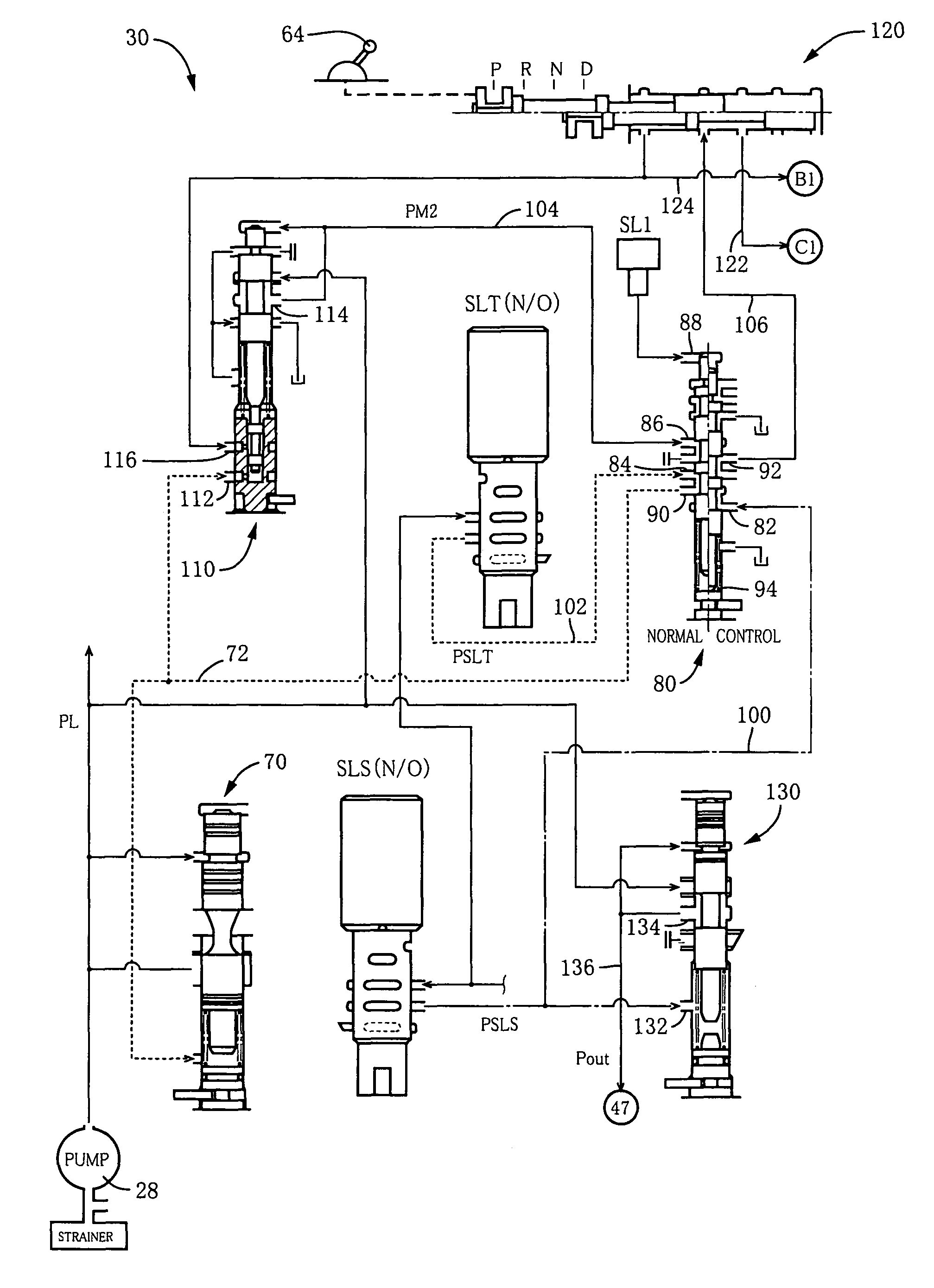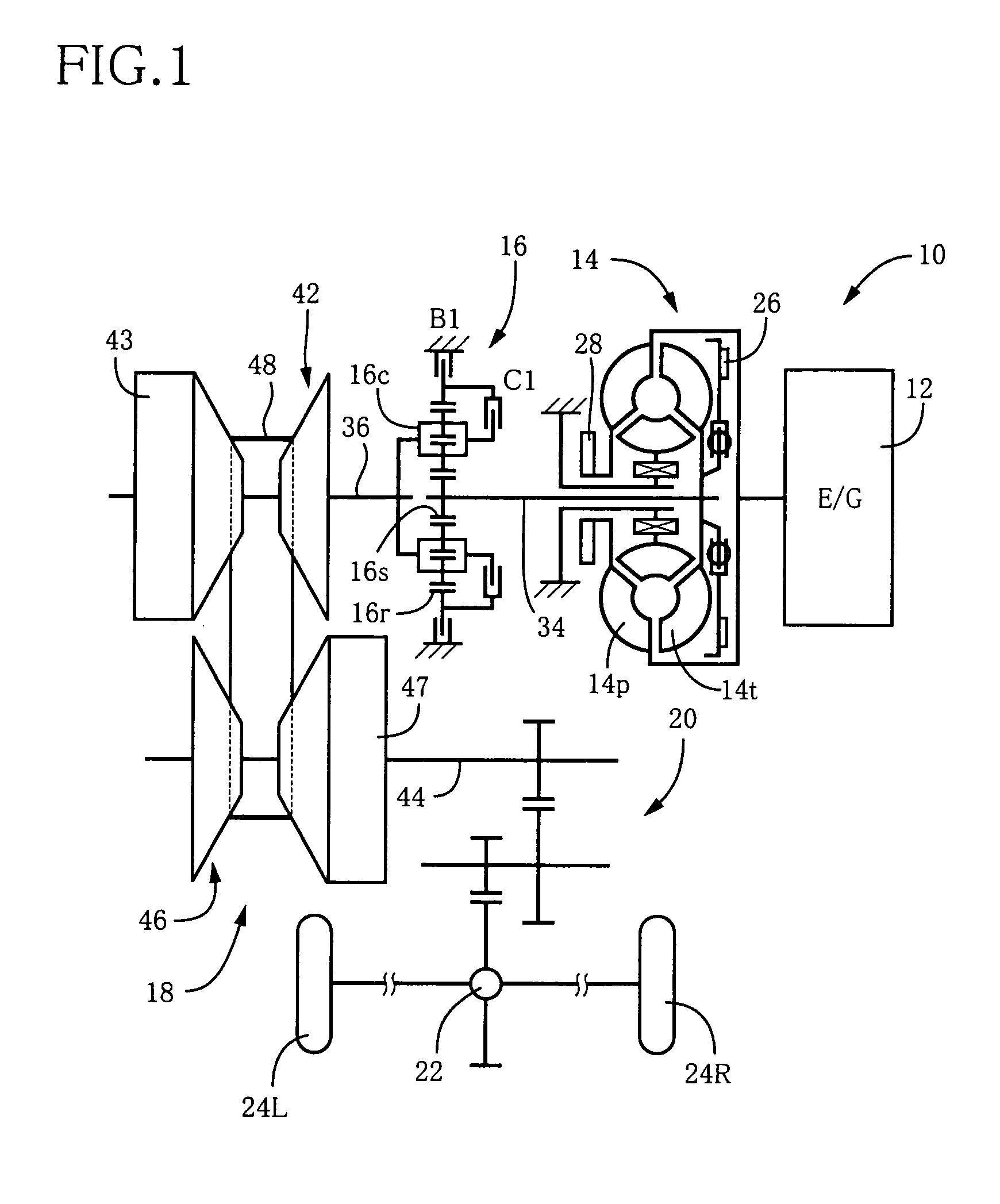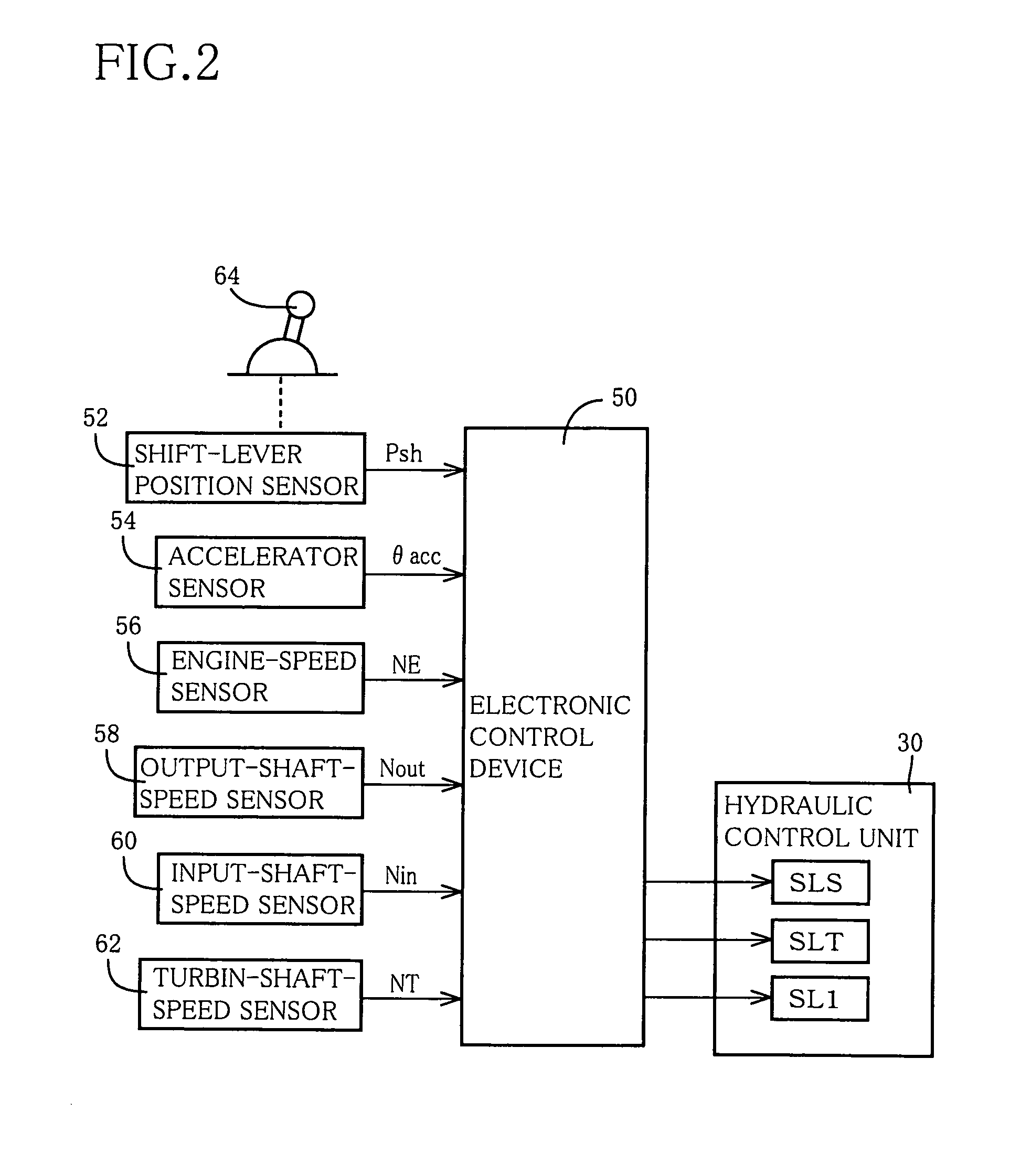Hydraulic control system for vehicular power transmitting mechanism
a transmission mechanism and hydraulic control technology, applied in the direction of gearing control, gearing elements, gearing, etc., can solve the problems of reducing the power transmission efficiency of continuously variable transmission, deteriorating the durability of the belt, and the risk of an increase in the load acting on the belt, so as to achieve high durability and high energy efficiency
- Summary
- Abstract
- Description
- Claims
- Application Information
AI Technical Summary
Benefits of technology
Problems solved by technology
Method used
Image
Examples
Embodiment Construction
[0032]Referring first to FIG. 1, there is schematically shown a vehicular drive system 10 including a hydraulic control system constructed according to one embodiment of this invention. This vehicular drive system 10 is of a transverse type, and is suitably used for an FF type vehicle (front-engine front-drive vehicle). The drive system 10 includes a drive power source in the form of an internal combustion engine 12, a torque converter 14, a forward / reverse switching device 16, a continuously variable transmission (CVT) 18 of a belt-and-pulley type, a speed reducing gear device 20, and a differential gear device 22. An output of the engine 12 is transmitted and distributed to right and left drive wheels 24R and 24L through those devices 14, 16, 18, 20, 22. The forward / reverse switching device 16, belt-and-pulley type continuously variable transmission 18 and speed reducing gear device 20 constitute a major portion of a power transmitting mechanism.
[0033]The torque converter 14 inclu...
PUM
 Login to View More
Login to View More Abstract
Description
Claims
Application Information
 Login to View More
Login to View More - R&D
- Intellectual Property
- Life Sciences
- Materials
- Tech Scout
- Unparalleled Data Quality
- Higher Quality Content
- 60% Fewer Hallucinations
Browse by: Latest US Patents, China's latest patents, Technical Efficacy Thesaurus, Application Domain, Technology Topic, Popular Technical Reports.
© 2025 PatSnap. All rights reserved.Legal|Privacy policy|Modern Slavery Act Transparency Statement|Sitemap|About US| Contact US: help@patsnap.com



